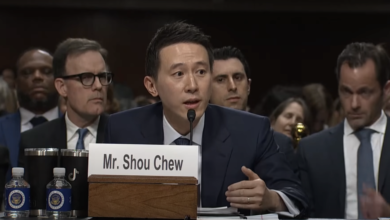The truly monstrous character of imperialism has been on full display in recent days.
As the world marked the 72nd anniversary of the U.S. atomic bombing of Hiroshima and Nagasaki that killed hundreds of thousands, President Donald Trump threatened the Democratic People’s Republic of Korea (North Korea) with “fire and fury like the world has never seen.”
A new, nuclear war aimed at annihilating the DPRK, with weapons immensely more powerful than those dropped on Japan, is now being openly promoted by elements of the U.S. ruling establishment.
“If there’s going to be a war to stop [Kim Jong Un], it will be over there,” said Sen. Lindsay Graham in an August 2 interview. “If thousands die, they’re going to die over there. They’re not going to die here. And he [Trump] has told me that to my face. And that may be provocative, but not really. When you’re president of the United States, where does your allegiance lie? To the people of the United States.”
In other words, it’s fine with Graham and Trump if thousands of Koreans, Japanese and U.S. troops die, so long as the United States itself is not affected!
The drive toward war was heightened by the UN Security Council’s passage of a U.S.-authored resolution imposing harsh new sanctions on the DPRK’s economy. After the U.S. refused a Russian-proposed amendment stating that the aim of sanctions was not regime change, Russia still bowed to U.S. pressure and voted for the resolution, as did China.
A history of imperialist aggression and resistance
Ever since the Korean War, when the United States leveled all of North Korea and killed 4-5 million Koreans, a wing of the U.S. ruling class has sought regime change in the DPRK. The war never actually ended. Combat was suspended by an armistice agreement signed in 1953, when the Eisenhower administration told the DPRK leadership that if they didn’t sign, the U.S. would destroy all the population centers of the North with nuclear bombs.
The combined military force of Chinese volunteers and North Korean military units and guerrillas evicted U.S. and allied troops from North Korea and drove them south of the 38th parallel. Thus, the Korean war constituted the first military defeat for U.S. imperialism, followed 20 years later by its defeat in Vietnam. North Korea’s militancy and tenacity in its struggle to preserve Korea’s national identity in the face of the U.S. imperialist onslaught remains a characteristic feature of the political and psychological orientation of the DPRK.
When asked in 2001 what his policy on the DPRK was, a top State Department figure, John Bolton, replied, “no North Korea.”
Echoing Bolton, Graham stated in his recent interview, “There is a military option to destroy North Korea’s program and North Korea itself.”
In the 2017 annual massive military maneuvers involving hundreds of thousands South Korean and tens of thousands U.S. troops, the commanding generals freely spoke of “rehearsing” for invasion of the North and “decapitation” of its leadership.
But mainstream media, liberal as well as conservative, acts, as always in times of war danger, as transmitters of Pentagon propaganda. Certain key terms are endlessly repeated – “the dictator,” “the North Korean threat,” “murderous” and “rogue state” – terms that are never applied to U.S. allies no matter how dictatorial, nor, of course, to the United States itself no matter how many it kills.
The debate inside the imperialist establishment – Echoes of the “Cold War”
The main factor restraining a U.S. military assault on the DPRK up until now has been the North’s military capacity to hit back at South Korea and Japan if attacked. Both of the latter countries are home to many U.S. bases. In true colonial fashion, South Korea’s military would still be under U.S. command in the event of a war.
In his 2002 State of the Union message, George W. Bush ludicrously labeled Iran, Iraq and North Korea the “axis of evil,” and the next year invaded Iraq and destroyed that country. That was when North Korea put its nuclear weapons program into high gear. The U.S./NATO destruction of Libya after it dismantled its nuclear program reinforced the DPRK leadership’s determination.
It is clear that North Korea’s nuclear program is meant as a deterrent. The DPRK leaders know without a doubt that if they were to launch a first strike that they would be annihilated by the far greater nuclear weapons of the US.
The advance of the DPRK’s nuclear weapons and missile programs has caused a deep and intensifying debate inside the imperialist ruling class.
One side, represented by Secretary of State Rex Tillerson, Sen. John McCain, and some leading generals believes that a military attack would be too costly and destabilizing.
The other side believes that, as Graham put it, war with North Korea is “inevitable, and argues that it should take place sooner rather than later when the DPRK may become militarily stronger.
The latter view echoes the “Cold War,” when powerful factions in both the civilian and military establishments argued, beginning in the late 1940s, for pre-emptive strikes on the USSR and the People’s Republic of China. On several occasions the world came close to nuclear catastrophe, and the U.S. government has never agreed to a pledge to forego first-strike use of nuclear weapons.
The DPRK has offered a way out of the current crisis, stating that it would suspend nuclear weapons and long-range missile tests if the U.S. and South Korea cease their massive military maneuvers, and the United States signs a peace treaty ending the Korean war.
Trump, like Obama before him, has flatly refused.
The Party for Socialism and Liberation rejects the demonization employed by imperialism against all targeted countries and governments, which is particularly intense towards the people and state of the DPRK. We stand with the Korean people and all the people in Asia who resolutely oppose any new imperialist aggression against the people of North Korea.




